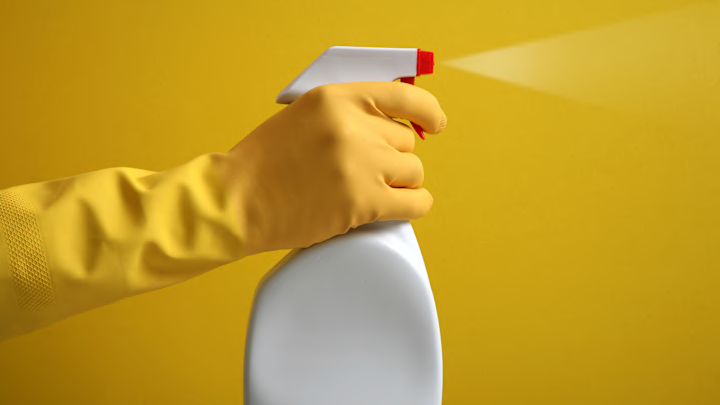Dusting down every surface of every cabinet, table, shelf, window frame, nook, and cranny week after week is a tedious task. Fortunately, creating a simple spray is a simple way to cut back on the time you spend on this chore. The best part? This dust-repelling concoction uses products you likely already have.
How to Make Your Own Dust Repellant Spray
According to Apartment Therapy, this easy cleaning hack will help prevent dust from settling on your home’s surfaces. You only need four ingredients to make it: combine 1 cup of water, 1/4 cup of white vinegar, 2 tablespoons of olive oil, and a drop or two of dish soap.
The olive oil in the mixture will keep dust from settling quickly, while vinegar serves as a cleaner that helps cut through any existing filth. Make sure you shake the bottle before each use—the oil may separate from the water over time.
Once you’ve thoroughly combined the ingredients, simply spray the mixture on your floors, baseboards, walls, and wooden furniture—really any non-glass place you typically dust—and wipe the surface down with a microfiber cloth. Avoid using it on mirrors, windows, or upholstered furniture, as the ingredients may streak or leave grease spots on glass or fabric.
A note of caution: Don’t assume this spray is a one-and-done solution to dusting. Dust will eventually settle and build up, so you will still have to stay on top of your cleaning routine—you hopefully won’t have to wipe your surfaces as often.
There are several other DIY dust-repellant spray recipes floating around the internet. Some call for adding citrus essential oil to the above mixture (mainly just for the scent), while others suggest using fabric softener. Investing in an air purifier should also cut down on the amount of dust you have swirling throughout your home.
What Is Dust?
Dust is actually a whole host of little particles. Dead skin makes up some of it, but pollen and bits of dirt you track in from the outdoors also contribute to the dust that accumulates around a home. Pet dander, little pieces of hair, and fibers from furniture and clothing are also to blame; all those ultrafine particles build up over time, creating an ongoing need to clean.
Dusting is an onerous chore, but it is an important one. Not only is dust unsightly, but it can also exacerbate allergies and worsen asthma symptoms.
Discover More Cleaning Tips:
